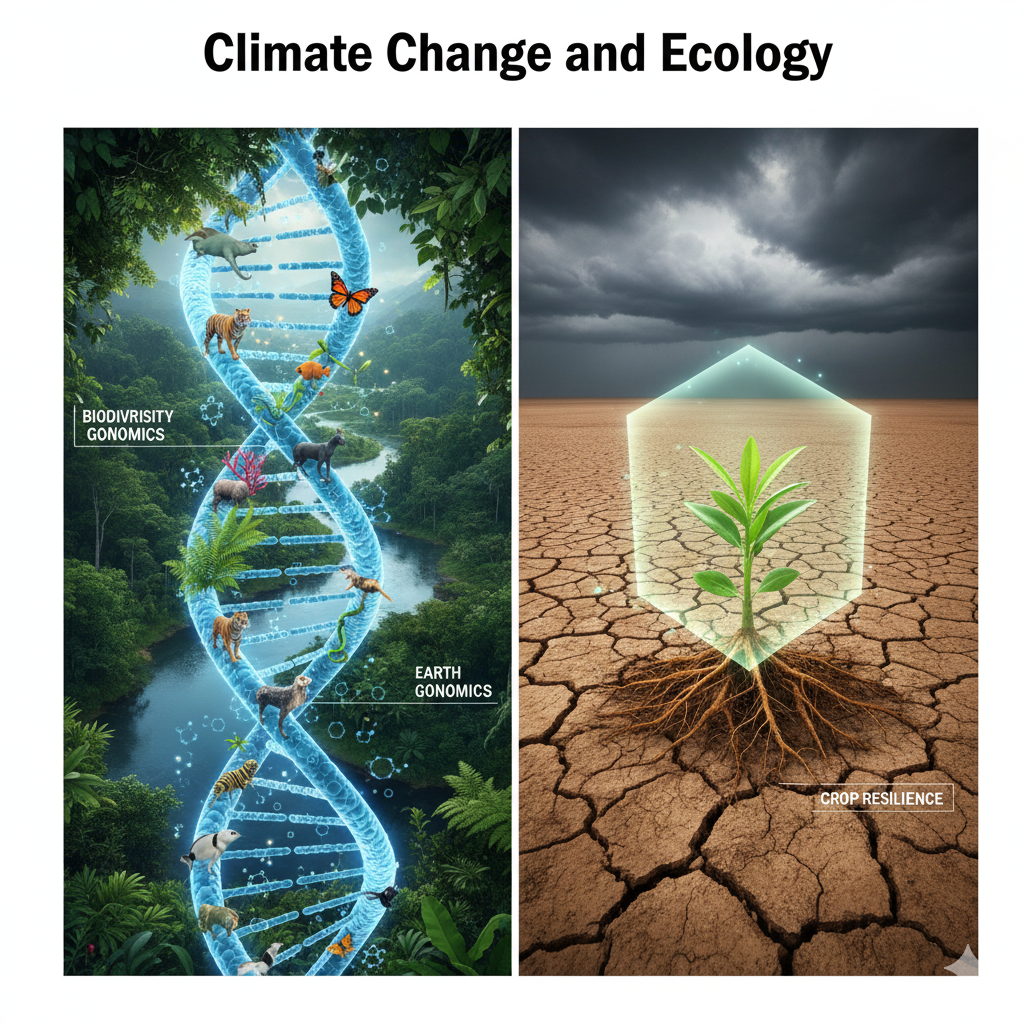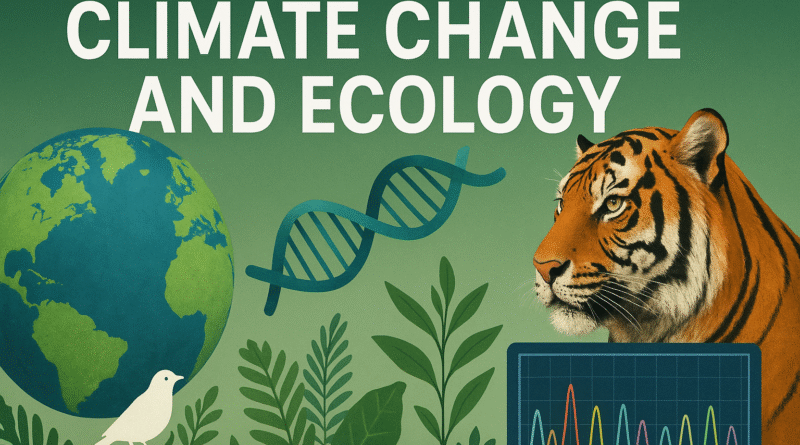Climate Change and Ecology
Title: Climate Change and Ecology
It’s no secret that our planet is facing serious environmental challenges. Climate change is altering ecosystems at an unprecedented rate, and as a result, the fate of countless species hangs in the balance. Therefore, we need powerful, innovative solutions now more than ever. Moreover, scientists and researchers are turning to the cutting edge of biological science to find ways to protect biodiversity and secure our food future. This blog explores two incredibly exciting areas where biology meets conservation and agriculture: Biodiversity Genomics and Crop Resilience through biotech.
Decoding Life: The Power of Biodiversity Genomics
Imagine creating a massive, searchable database of all life on Earth. That’s the ambitious goal of initiatives like the Earth BioGenome Project. In essence, this global effort aims to sequence the DNA of every known plant, animal, and microorganism species. Consequently, we gain a molecular-level understanding of life’s incredible complexity.
Genomic Secrets for Conservation
The insights from large-scale genome sequencing are revolutionary for conservation biology. For example, by analyzing a species’ DNA, scientists can determine its genetic health and identify populations most at risk. Therefore, conservation efforts become far more targeted and effective. In addition, this vast library of life helps us understand ecological resilience how different species and ecosystems naturally cope with stress, like rising temperatures or habitat loss.
Discovering New Biological Resources
Furthermore, mapping the genomes of diverse organisms is also a massive undertaking for discovery. As a result, we can uncover genes that produce novel proteins, enzymes, or natural compounds. These biological resources could lead to breakthroughs in medicine, sustainable materials, or industrial processes. Thus, biodiversity genomics doesn’t just save species; it unlocks potential benefits for human society, too.

Cultivating the Future: Crop Resilience and Agricultural Biotech
The changing climate presents a major threat to global food security. Extreme weather events, such as prolonged droughts or intense heat waves, severely damage essential food crops. Therefore, developing plants that can thrive under these challenging conditions is absolutely critical. Consequently, agricultural biotechnology is stepping up to the plate.
Engineering Hardier Crops
Genetic engineering and synthetic biology allow us to precisely modify crops to enhance their survival traits. For instance, scientists are introducing genes into staple crops to drastically improve drought resistance. Moreover, this targeted approach helps crops maximize water efficiency, enabling them to survive with less rainfall. In this way, we are securing yields even in regions suffering from water scarcity.
Sustainable Farming through Biotech
In addition to climate resilience, biotech offers a pathway to more sustainable farming practices. Therefore, a major focus is on improving the nutritional value of crops making them richer in vitamins and minerals. Furthermore, researchers are engineering crops that can naturally utilize nitrogen from the air more efficiently. As a result, farmers reduce their reliance on synthetic fertilizers, which lowers costs and significantly cuts down on agricultural runoff, a major source of water pollution. Similarly, introducing traits for natural pest resistance minimizes the need for chemical pesticides. Consequently, this shift benefits environmental health, farmer safety, and consumer well-being. This innovative application of biotechnology is essential for creating a sustainable food system in the face of climate change.
The Global Takeaway
Climate change and ecology are fundamentally intertwined, and our response must be equally integrated. Therefore, the work in biodiversity genomics provides the essential roadmap for conservation, detailing the molecular blueprint of life we must protect. Simultaneously, crop resilience research offers the practical tools to adapt our food supply to the changing environment. In conclusion, these powerful scientific fields are giving us the essential knowledge and technology to build a more resilient and sustainable future for both nature and humanity. We must continue to invest in this sustainable technology to safeguard life on Earth.




